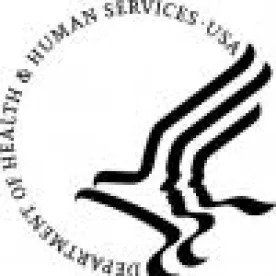Two federal courts have struck down the U.S. Department of Health and Human Services’ (HHS) “Conscience Protection Rule,” which was slated to go into effect on November 22, 2019.
The Rule purported to enforce pre-existing “conscience laws” that protect the rights of certain employees of healthcare institutions that receive federal funds to refuse to participate in certain healthcare procedures (i.e., abortion, sterilization, and assisted suicide) based on religious or moral objections.
The Rule had been subject to challenges lodged in federal courts across the country by states, the District of Columbia, local government entities, health care organizations, and non-profit healthcare advocacy groups. These entities opposed the Rule for a number of reasons, including concerns it would create staffing challenges and reduce patient access to healthcare.
Judge Paul Engelmayer of the U.S. District Court for the Southern District of New York on November 6, 2019, issued the leading decision in a detailed 147-page opinion. Finding the Rule violates the Administrative Procedure Act (APA) and the U.S. Constitution, Judge Engelmayer rejected HHS’ position that the Rule merely “implements and clarifies the preexisting conscience protections enacted by Congress.” Instead, the court held the Rule was substantive in nature and “relocates the metes and bounds … of conscience protection under federal law.”
Judge Engelmayer’s top reasons for invalidating the Rule include the following:
-
Congress neither explicitly nor implicitly gave HHS authority to promulgate most of the substantive portions of the Rule.
-
The Rule’s authorizing HHS to terminate all of a recipient’s federal funding for a breach of the Rule was not supported by any statute and was unconstitutional.
-
The Rule violated the APA because it conflicted with Title VII of the Civil Rights Act’s provisions allowing an employer to not accommodate an employee’s religious beliefs when: (a) doing so would be an “undue hardship” on the employer; or (b) the employer has offered the employee an alternative “reasonable accommodation.”
-
The Rule conflicted with the Emergency Medical Treatment and Labor Act’s requirement that hospitals that receive federal funds and have emergency departments provide emergency care to any patient suffering from an emergency medical condition, which does not include any exception for religious or moral refusals to provide emergency care.
-
HHS’ justification for the Rule (a purported “significant increase” in complaints related to conscientious objections to providing certain medical care) was factually unsupported.
Judge Stanley Bastian of the U.S. District Court for the Eastern District Court of Washington struck down the Rule on November 7. For now, HHS has not yet appealed the decisions. In any event, employers still must comply with existing conscience rules set forth in various federal statutes, as well as Title VII’s requirement to reasonably accommodate employees’ religious beliefs, absent an undue hardship to the employer. Employers may review our article with Frequently Asked Questions about religious accommodations in the healthcare industry and listen to a 30-minute webinar.






 />i
/>i

